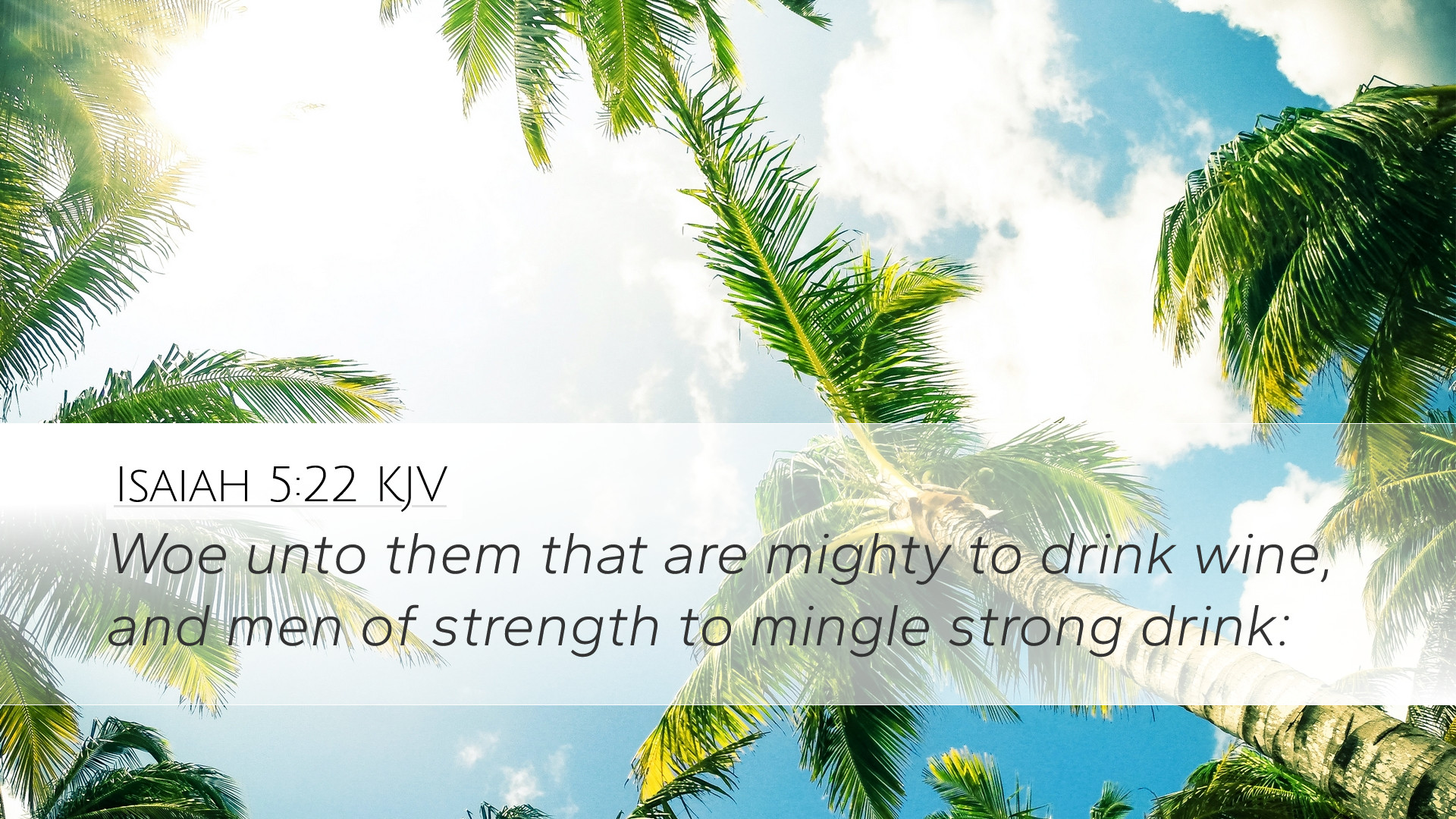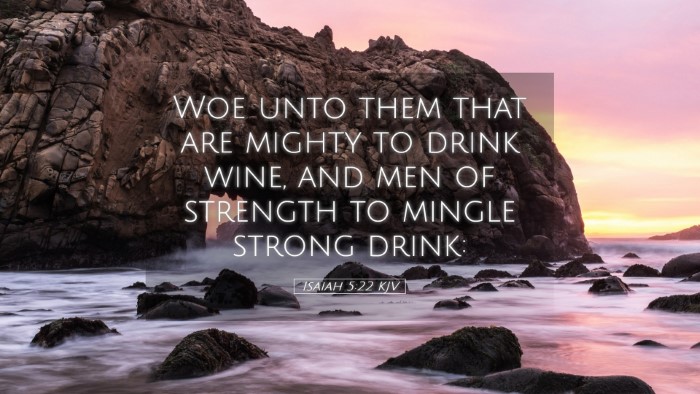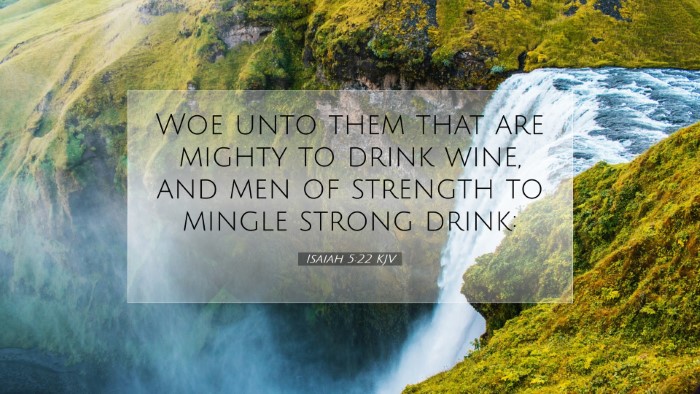Commentary on Isaiah 5:22
Introduction
The verse Isaiah 5:22 states: "Woe to those who are heroes at drinking wine and valiant men in mixing strong drink." This proclamation forms part of the broader prophetic discourse in which Isaiah condemns the moral decline and spiritual bankruptcy of Israel. Throughout history, the understanding of this verse has evolved, offering significant insights into the nature of sin, judgment, and divine truth.
Contextual Setting
Isaiah delivered these oracles during a tumultuous period in Israel's history, marked by political instability and moral decay. The northern kingdom of Israel was becoming increasingly corrupt, indulging in practices that profoundly displeased God. The prophet uses vivid imagery to depict the downfall of a society that seeks pleasure, particularly through excessive drinking.
Matthew Henry's Insight
-
Henry asserts that this verse encapsulates the spirit of indulgence that plagued the people. Their prowess in drinking wine was viewed not as a strength but as a sign of weakness and moral failure. Rather than seeking the righteousness and holiness desired by God, they reveled in excess.
-
He draws attention to the word "woe," indicating a solemn warning against those who glorify drinking. This reflects a broader spiritual malaise, pointing to a society that prioritizes vice over virtue.
Albert Barnes' Perspective
-
Barnes expands on the notion of a "hero" in drinking, remarking that such a title reflects an inversion of moral values. He laments the fact that society exalts those who engage in drunkenness while neglecting the revered qualities of temperance and righteousness.
-
He also notes that strong drink often symbolizes deep-seated issues within a culture—a distraction from reality, leading to a false sense of security and peace. This leads to societal breakdown and moral decay, mirroring the concerns voiced by Isaiah.
Adam Clarke's Analysis
-
Clarke emphasizes the consequences of such behavior, warning that it leads to disastrous outcomes—not only for the individuals involved but for society as a whole. He argues that the passionate pursuit of indulgence damns both body and soul.
-
Moreover, Clarke highlights the irony in the celebration of drunkenness; while it may be viewed as a source of joy, it ultimately brings desolation and despair, stripping individuals of their dignity and discernment.
Theological Implications
This verse serves as a critical reminder of the dangers of moral relativism and cultural decadence. The prophet Isaiah points to a deep-seated sinfulness that is often celebrated in society, challenging pastors, students, theologians, and scholars to reflect on the contemporary implications of this message.
Application for Modern Believers
-
Modern believers must confront their own tendencies towards indulgence—whether in substance, time, or priorities—and examine how these choices reflect their commitment to God’s standards.
-
Further, the call to holiness demands a counter-cultural stance against the philosophies that celebrate hedonism and excess.
Conclusion
Isaiah's declaration of "woe" is as relevant today as it was in ancient Israel. This verse challenges us to consider the societal norms we accept and the values we uphold. It urges pastors, scholars, and laypeople alike to foster a community that encourages righteousness and temperance rather than one that valorizes self-indulgence. The sober reflection on Isaiah 5:22 calls for a disciplined life that honors God and encourages others towards paths of virtue.


